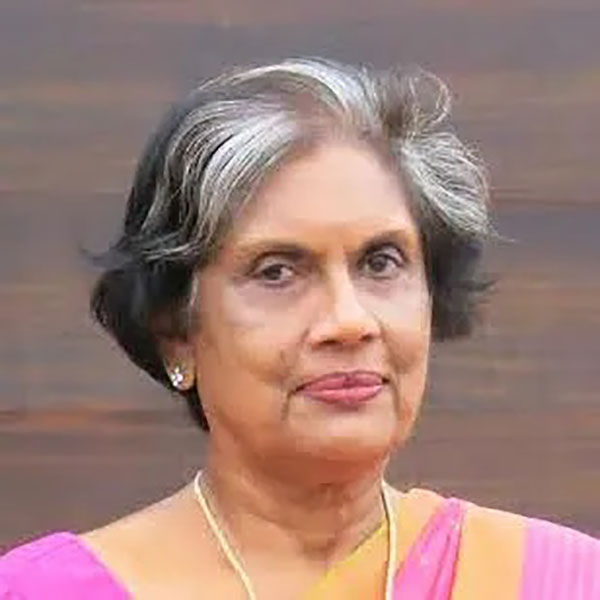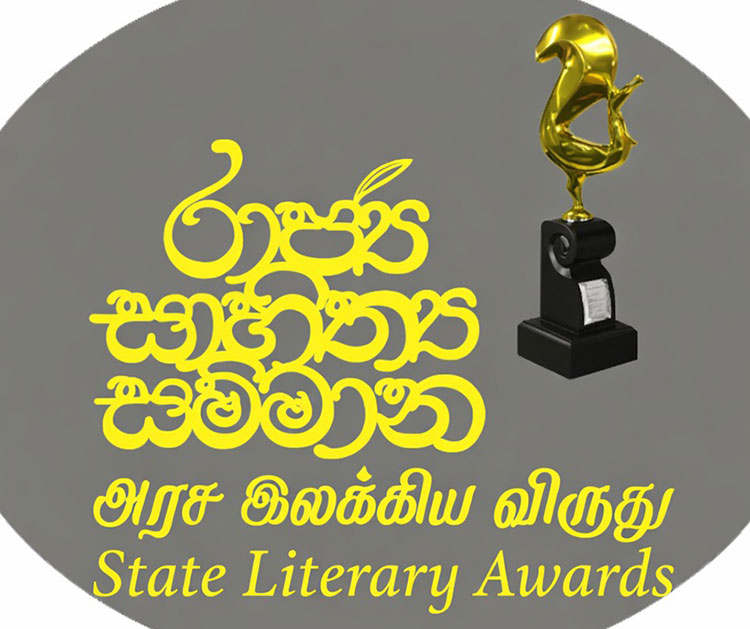Opinion
Political crisis: A way out

Former President Chandrika Bandaranaike Kumaratunga has sent the following proposal to leaders of political parties and civil society organisations.
INTRODUCTION
This proposal is made in the present context of the major political crisis facing the country. The Government has totally failed to deliver proper governance, resulting in the complete breakdown of the economy. The country has no Government. The vast majority of the citizens are out on the streets demanding the resignation of the President and the entire Government in a peaceful but powerful movement. Peoples’ power seems to have taken over the country.This proposal is an attempt to find a resolution to the immediate problems arising from the situation. We have taken into serious consideration the need for a creation of a Government with the participation of Civil Society.The present situation does not permit an election to be held immediately. It seems evident that an interim government is needed, in order to bring back political and social stability, and to resolve the most urgent economic issues.The most feasible option is that of an interim Government that will function for a maximum period of 6 months, with the responsibility to restore order and stabilize the economy before calling for Parliamentary elections.The proposal below has been worked out after dialogue with representatives of civil society, academics and the youthful protesters on the one hand, and taking into consideration the Constitutional stipulations as well as the existing Parliamentary situation, on the other.
PROPOSAL
1. An Interim Government will be formed for a maximum of 06 months.
2. (i) The Head of the Government shall be the Prime Minister elected from among the Members of Parliament, who enjoys the confidence of the majority of Parliament.
(ii) The Prime Minister will be the Head of Government and Head of the Cabinet.
(iii) The Cabinet of Ministers will be charged with the direction and control of the Government.
They shall be collectively responsible and answerable to Parliament.
3. The Cabinet will comprise of 12 Ministers from amongst the Members of the present Parliament as per Article 42 of the Constitution.
4. The Interim Government shall bring amendments to the Constitution which will :-
(a) abolish the office of the Executive President and replace it with that of a Head of State who will be the nominal President.
5. Strengthen the Constitutional Council and Independent Commissions.
The independence of all these Institutions from political influences shall be guaranteed.
Chairman of the Constitutional Council will be the Speaker of the Houses of Parliament. The Prime Minister and the Leader of the Opposition will be members, together with 7 others who will be distinguished citizens from the professions and academia.
The Chairman of the Council of State will be one of the 7 members.
Members of Parliament, Pradeshiya Sabhas and Local Government bodies shall not be members of the Constitutional Council.
All members of the Constitutional Council shall be selected from those who have no allegations of corruption or other wrong doing.
The members of the Independent Commissions shall be appointed by the Constitutional Council, selected by consensus, from among persons who have recognized expertise in their professions with no allegations of wrong doing.
The President of the Republic and the Leader of the Opposition shall nominate one member each. One-third of the total number of members shall be below 40 years of age and one-third of the total members shall be women.
6. There will be a Council of State for National Policy (COS).
The Cabinet shall act in consultation with the Council of State on all matters relating to the drafting and implementation of Policy, Laws and Regulations.
(a) The Council of State will promote democratic governance and prevent authoritarianism through the effective participation of citizens in decision making and implementation of government policy.
(b) Provision is made for 40% of the members of the Council to comprise of youth, permitting effective youth participation in the government.
(c) The Council of State shall act in close collaboration with the Cabinet of Ministers and other relevant government institutions in the performance of its duties.
(d)The Cabinet of Ministers is deemed to consult the COS on important laws and policies, before they are presented to Parliament and/or implemented.
(e) The Council of State will review important laws and policies before they are presented to Parliament by the government. It may also propose laws to the Cabinet and Government.
The Council of State will review policies of the Government, especially regarding Constitutional Amendments; the Economy; Governance, Education and matters relating to anti-corruption and transparency in government. The Council may also present proposals to the Government on the Economy and economic development and social matters.
(f) The Council of State will promote dialogue between the Government and the various sectors of civil society- professionals, business/private sector, academics and NGOs in the process of Government policy formulation and implementation.
7. The membership of the Council of State shall comprise of representatives of all ethnic and religious communities in Sri Lanka.
The term of office of the members of the Council will be 5 years and shall be concurrent with the term of office of the Parliament.
Elected members of political parties, individual MPs, Provincial Councillors and members of Local Government bodies will not be eligible for membership of the Council of State.
(i) The Council of State will be comprised of 36 members of which 27 shall be nominated by Civil Society Organizations, the professions, business and private sector, academics and NGOs and 09 members nominated by the PM and Leader of the Opposition.
The 27 Civil Society representatives will be nominated as follows: –
(ii) A total of 16 members will be from the professional associations in the following fields on the basis of one /two representatives from each association:
a) The Legal Profession – 02
b) The Medical Profession – 02
c) Accountants – 02
d) IT Professionals – 1/2
e) Engineers – 01
f) Surveyors &Valuers – 02
g) Teachers& Principals – 02
h) Retired Senior Public servants – 03
Other professions
(iii) Representation from the following fields will be as follows:
a) Artists – 02
b) Private sector- 05
c) Academics – 02
d) NGOs – 02
(iv)not less than 40% of the total no.of members shall be below the age of 40 years, (15)
(v) 40 % of the total shall be women as per 6 (ii)and (iii) above. (15)
N.B. This draft needs to be perfected in legal terms.
Opinion
A paradox of history

There seems to be a striking similarity between ancient Greece and modern Britain. Both countries remain paradoxes of history. Greece was a small city state constantly at war with neighbouring countries. It did not have a big army, but it had considerable sea power. However, Greece was a leading state over the whole of the Mediterranean. In fact, Greece was once a super power in the Western world.
Britain was very powerful in the 19th century. British justice was administered in Africa, India and Ceylon. British factories flourished in many countries and schoolchildren started reading R.L. Stevenson’s ‘Treasure Island’ and the works of Rudyard Kipling. What Ralph Waldo Emerson said in the 1850s is still valid today. He said, “If there’s one test of national genius universally accepted, it is success; and if there be one successful country in the universe for the last millennium, that country is England. It is the best of actual nations.”
In World War I, Britain faced a crushing defeat. Eventually, the British Empire was reduced to a Commonwealth. World War II shattered the image of Britain further. Although Britain lost much of its power, it continued to be an influential country. Even after achieving independence, India retained English as an official language. The British parliament system is well established in many Commonwealth countries. Some people still wonder how England still exercises its influence over the minds of men and women.
Staying power
There are many powerful countries in the world today such as the United States, Russia and China. Although England is not a super power, she has staying power. According to Oliver Wendell Holmes, a good part of greatness is simply being there. For that matter, England has been there for many centuries. So far no other country has been able to defeat her. As a result, sometimes we wonder whether we can have a world without England.
England has had an unwritten Constitution for a very long time. Other countries have emulated her political institutions. The British people have an established church with complete religious freedom. Although there are social classes in Britain, there has been no major clash among them. Unlike in many other countries, there are only two leading political parties in England. When the Labour Party is in power, the government is not subservient to labour. Similarly, when the Conservative Party is in power, the government is not conservative.
Most British colonies in the East including India and Ceylon did not sever the cultural and emotional links with Britain and retain them even after achieving independence. India became independent in 1947, but she decided to retain English as an official language. By doing so, India produced a number of English writers such as R.K Narayan. However, Ceylon did not give English any official status and treated it as a link language. As a result, students paid less attention to learning English. They were made to understand that everything can be done by learning Sinhala and Tamil. We have failed to produce English writers in the calibre of J. Vijayatunga who wrote ‘Grass for my feet.’
Politically shrinking
The United Kingdom is politically shrinking. However, its influence vibrates throughout the world. English has brought many nations together. There is a common understanding among countries that share the English language and literature. William Shakespeare’s dramas are staged in countries such as China where English is not an official language. People have come to the conclusion that English has become a broker of ideas and institutions.
England is not an aggressive country. However, if provoked, it can deliver a mortal blow to its enemy. British Prime Minister Margaret Thatcher showed her mettle as the iron lady. Britain held the fort against the might of Napoleon Bonaparte who ruled France. The country can still boast of a heavy moral credit. The British stick to their international agreements. The power of England draws mainly from its language. British people say ‘It’s right’ when it is right’. When it is not right, they say, ‘It’s not right.’ Meanwhile English occupies a pre-eminent place in world languages. All the research work in many parts of the world is available in English. You can learn any subject easily through English.
Apart from the language, people respect British standards which are technical specifications and quality benchmarks developed by the British Standards Institution. The United Kingdom’s independent national standards body was established in 1901. It maintains over 37,000 standards covering industries such as construction, manufacturing and technology ensuring safety and reliability.
British English
Standard British English is the variety of English that has undergone codification to the point of being socially perceived as the standard language associated with formal schooling, language assessment and official print publications. For historical reasons dating back to the rise of London in the ninth century, the form of language spoken in London and the East Midlands became the Standard English used in schools, universities, literature and law.
British English functions as one of the two major foundational and standard varieties of the English language alongside American English. It serves as a primary reference point for spelling and grammar. It acts as a global standard, and international institutions are often defined by specific pronunciation.
Most Sri Lankan doctors primarily move to England for postgraduate training, higher specialisation and better career prospects. They are driven by superior training infrastructure, world-class facilities and globally recognised qualifications.
To sum up, when you think of learning an international language, there is no alternative to English. If you wish to read literature, you cannot ignore eminent English dramatists and poets such as William Shakespeare and John Milton. Many leading Sri Lankans like S.W.R.D. Bandaranaike were Oxford University products. Therefore, English deserves to be made an official language in Sri Lanka.
By R.S. Karunaratne
Opinion
State Literary Awards only for the rich?

The Department of Cultural Affairs has once again called authors, and publishers to lodge their entries for selection of the prestigious State Literary Awards 2026.The criteria and conditions required and notified in the public domain, makes it mandatory for the literary work to be printed and published prior to submission for consideration of the awards. There is absolutely no provision for writers to submit their work in Manuscript form.
Where does that leave the financially impoverished writers who are talented, creative and wish to submit a well edited typescript of their work as manuscript for consideration of the State Literary Awards? In a literary environment that encourages a proliferation of self-published books of all forms and features presented by vanity publishers who have their eye on the purse of the author than on literary merit and artistic excellence, it is easy to show that you are an ” established writer” by spending your cash abundantly towards glossy covered books which the printing industry and fawning publishers will lap up with greed.
Even the Gratiaen Prize in Sri Lanka, sponsored by world-renowned Michael Ondaatje allows for Manuscript entries together with published books. Significantly, the manuscript entries that win the prize are assisted to publish their work which is part of the winnings. Many a young, aspiring writer with little funds who won the Gratiaen Prize on merit, but had submitted their entry in manuscript form have been thereby encouraged to submit their work on merit basis only.
It is a fact that the Commonwealth Short Story Prize, a massive state-supported initiative across 56 nations accepts only unpublished short fiction. Further, several countries in the world have established national or state level literary prizes that specifically accept unpublished manuscripts to provide equity in discovering new talent and supporting national literature without bias or favour. In Australia, Jamaica, Philippines, major national awards organised by the State for literature, specifically accept unpublished manuscripts for consideration.
Let’s face the truth. The printing costs are escalating. There is little demand in Sri Lanka for literary work in the English Language in particular. Traditional Publishing where the literary work is reviewed and assessed for talent and creativity and thereafter published is seldom found. The reviews and critical analysis of literary works are rare. But publishers make a pile by pandering to the vanity of aspiring writers who have the financial clout to pay their way through to being featured in prestigious award ceremonies and accolades. Thereafter, their substandard works get a further fillip by bearing the label of “Won the State Literary Award for Literature”! It is a cycle of literary charlatans and their pimps in the publishing industry for whom the price that is paid for publishing and not Meritocracy is the sine-qua-non.
Is this the level playing field promised by the NPP Government and their Marxist protagonists? A government that was voted into power on the platform of affording fair opportunity and equality seems to discriminate in favour of the Haves against the Have- nots in the cultural department to say the least! Anil Fernando
Opinion
Delivering on English

English literature offers a rich heritage of wonderful ideas and thoughts. The reader can be intellectually uplifted. It brings refreshing new vistas and stimulating new ideas. However, this English literature has to be first introduced to the student in order to fire up his or her interest and be made aware of this rich source of culture. Students of basic English as a second language work hard and learn all the hum-drum mechanics of the language, for which they get tested and graded. But importantly, nae crucially, this should be followed up with intellectual rewards for the students’ efforts – which, of course, is the enjoyment of the works of literature of the many great writers in the English language. This is the great payoff, the great dividend for all their efforts but this, apparently goes missing.
One of the obvious reasons for the lack of “follow through” may be lack of time allocated in the curriculum – or, perhaps, more darkly, the teachers’ own lack of knowledge of the great range of good reading materials produced by the countless generations of literary geniuses who have gone before. Such writers have laid down for us a heritage of glorious literary works in books and essays, all of which are to be found in any good library. It is thought that much of this good literature ought to be introduced to all students of English, “full stop,” as part of developing a knowledgeable and cultured society. (Isn’t that what we want?) Reading English literature should bring an intellectual enrichment to all those willing to drink from this Bacchanalian horn of plenty.
It must be said finally, that it can be fairly expected that most young people, especially those learning English as a second language, are totally unaware of the many outstanding pieces of writing that propel English to stand tall amongst the rest. That is, students need to be first introduced to great writings and have a spark of interest ignited in these great works of literature.
For example, by being introduced to “Daffodils,” a short descriptive poem by William Wordsworth, the student can get some very pleasant ideas to think on.
Do not overlook Conan Doyle’s “Sherlock Holmes” detective stories, each one captivating the reader’s attention right to the end. It is by these short stories that the novice reader can first consolidate his power of reading.
For light reading Jerome K. Jerome’s book “Three Men in a Boat” is suggested. On one occasion he goes to the library suffering from a slight hay-fever (allergy) seeking a cure. He consults a book, “Lexicon of Pharmacology”, and recoils in horror as his symptoms fit most of those diseases described in the book! He concludes he cannot live much longer and staggers home to rest and recuperate! This is a well related tale in the book – although seemingly quite implausible!
Similarly, by having the poem meanings explained, e.g. “What is Life if Full of Care?” by William Henry Davis – how he regrets that we humans are always in a hurry, too busy to notice or see the delights of nature, and scenes of natural beauty, e.g., a young woman’s smile as she passes by; we have no time to make friends and even kiss her. Regrets! Explaining this to students would bring a certain intellectual insight.
John Keats’s poem, “Ode to Autumn” is another great work describing the ripening fruits of the autumn season and how nature as a living being, brings to fruition all the good things of a rural landscape quietly humming with warmth after a hot summer.
Again, it is likely necessary to explain to a young, Sri Lankan mind the meaning of the descriptive poetry found in this magnificent poem.
This is the real English to be tasted and then swigged at lustily in pleasure and satisfaction, not some writing airing historical grievances for children to study!
1970 British Cohort Study
It should be observed here that the ‘1970 British Cohort Study’ followed 70,000 people to examine various aspects of their lives. One result discovered was that if a young person reads a lot, it develops his/ her general intelligence no-matter his parents; it makes him smarter.
It was also noted that reading brings life-long benefits; it improves mood, it helps with social skills, increases empathy, reduces anxiety, protects against depression and slows brain decay, the study found.
But these days many young people never gain a great competence in reading English; the fear is that standards are falling. This is bringing poorer critical thinking, less depth of personality and less empathy for others which has the result of a more turbulent society.
People are urged to switch off their headphones and read more of what they like – try reading the newspapers!
Priyantha Hettige
-

 Life style2 days ago
Life style2 days agoMarriot new GM Suranga
-

 Midweek Review6 days ago
Midweek Review6 days agoA question of national pride
-

 Features2 days ago
Features2 days agoMonks’ march, in America and Sri Lanka
-

 Business6 days ago
Business6 days agoAutodoc 360 relocates to reinforce commitment to premium auto care
-

 Opinion5 days ago
Opinion5 days agoWill computers ever be intelligent?
-

 Features2 days ago
Features2 days agoThe Rise of Takaichi
-

 Features2 days ago
Features2 days agoWetlands of Sri Lanka:
-

 Business15 hours ago
Business15 hours agoMinistry of Brands to launch Sri Lanka’s first off-price retail destination













